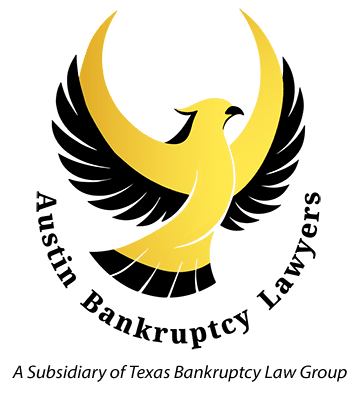
Chapter 13 Bankruptcy
Chapter 13 bankruptcy is a type of personal bankruptcy that assists individuals in managing their debt. It involves a repayment plan that can extend up to five years. During this period, the debtor makes monthly payments to a trustee, who then distributes the funds to creditors according to the plan approved by the court. This allows the debtor to repay their debts in a more manageable way.
Chapter 13 is an excellent option for individuals needing to catch up on mortgage payments, taxes, or child support, or for those who have the ability to repay their debts. This could be done without incurring interest, late fees, or penalties.
What Is A Means Test?
The means test is used differently depending on the chapter you file. For Chapter 7, the means test determines if you qualify for Chapter 7 bankruptcy. For Chapter 13, it helps determine the length of your repayment plan and how much, if any, you must pay to unsecured creditors. It calculates your gross income from the six months prior to filing, factoring in other expenses and anticipated future debts.
If you’re considering Chapter 13 bankruptcy, consult with an experienced bankruptcy attorney to ensure your case is handled correctly and the bankruptcy court has all the necessary information for a fair decision.
What Are The Benefits Of Filing For Chapter 13 Bankruptcy?
Filing for Chapter 13 bankruptcy offers many benefits, including:
- Mortgage Relief: Catch up on home mortgage payments without interest or late fees and stop foreclosure.
- Protection from Creditors: Safeguards individuals from creditors’ collection efforts.
- Asset Retention: Allows individuals to keep their real estate and personal property while catching up on overdue payments, preventing repossession.
- Lower Interest Rates: Potentially reduce interest rates on some secured debts, such as overdue car loans.
- Tax Benefits: Eliminates interest and penalties on certain taxes.
- Lien Stripping: Eliminates junior liens, including second mortgages.
- Debt Reduction: In some cases, reduce the amount owed on secured debts, only paying up to the value of the property securing the claim.
While Chapter 13 is a viable option, other alternatives should be considered before making a decision. These options can be discussed with one of our attorneys.
Considerations When Filing For Chapter 13 Bankruptcy
Despite its benefits, there are important considerations when filing for Chapter 13 bankruptcy:
- Monthly Payments: You must make monthly payments to a trustee for three to five years, depending on your income and debts.
- Risk of Case Dismissal: Missing payments or deadlines can result in your case being dismissed, losing court protection.
- Credit Score Impact: Filing for Chapter 13 can temporarily damage your credit score.
How Does Chapter 13 Bankruptcy Affect Your Credit Score?
Filing for bankruptcy can impact your credit score because it indicates difficulties in repaying debts as originally agreed. Chapter 13 bankruptcy will remain on your credit report for seven years, whereas Chapter 7 stays for ten years. However, successfully completing the repayment plan under Chapter 13 can demonstrate a commitment to managing your finances responsibly. This positive track record can help improve your credit over time, making the impact less severe compared to Chapter 7 bankruptcy. With patience and effort, you can work towards rebuilding your credit rating.
What Debts Can Be Discharged In Chapter 13 Bankruptcy?
There are a few types of unsecured debts that can be discharged in Chapter 13 bankruptcy. These include credit card debt, medical bills, and personal loans. In addition, some secured debt can be discharged, depending on the circumstance. And finally, in some cases, debt arising out of divorce settlements can be discharged in a Chapter 13, so long as it is not considered a domestic support obligation.
It’s important to note that you will need to continue making payments to the Trustee for a minimum of three years. Sometimes all unsecured debt is paid, sometimes none of it. Each bankruptcy petition is unique so the outcome depends much on the details of the case. If you miss payments or stop making them altogether, your case could be dismissed.
One thing to keep in mind is that secured loans–like car loans–may not be fully discharged in Chapter 13 bankruptcy. However, the balance on the loan may be reduced if the vehicle’s depreciated value is taken into account.

What Is The Difference Between Chapter 7 & Chapter 13 Bankruptcy?
There are six Chapters of bankruptcy, but most individuals or families file either a Chapter 7 or a Chapter 13. Chapter 7 can offer relief by discharging some of your debts, but to do so you’ll have to pass the means test.
It’s important to do research before making any decisions about filing for bankruptcy. Bankruptcy is a big step, and it’s not right for everyone. Make sure you understand the consequences of each type of bankruptcy before moving forward.
What Are The Eligibility Requirements For Filing For Chapter 13 Bankruptcy?
In order to be eligible to file for Chapter 13 bankruptcy, you need to meet certain requirements. These include:
- Showing ability and willingness to repay debt in a reasonable amount of time.
- Having unsecured debts less than $465,275 and secured debts less than $1,395,875.
- Filing state and federal income tax during the four-year period before filing for Chapter 13
- Receiving credit counseling from an approved organization before filing
What Are Some Common Myths About Chapter 13 Bankruptcy?
There are many myths about Chapter 13 bankruptcy. The most common is that it will destroy your credit score. This is not true! In fact, filing for Chapter 13 may actually help to improve your credit score over time with the guidance of Austin Bankruptcy Lawyers.
Finally, many people believe that they cannot qualify for Chapter 13 bankruptcy if they have a low income. However, this is not always the case–many people with low incomes can still qualify for Chapter 13 bankruptcy.

